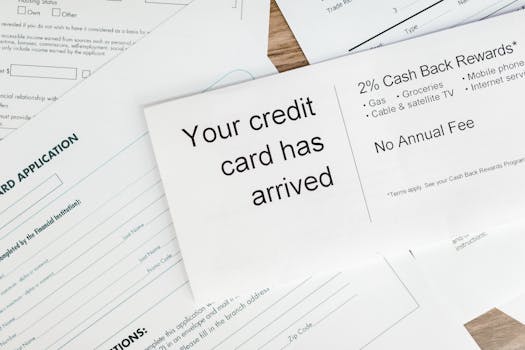Debt can be burdensome, often causing stress and anxiety. Many individuals find it challenging to keep track of multiple financial obligations. In such situations, debt consolidation offers a potential solution.
By combining multiple debts into a single payment, individuals can simplify their financial lives. This approach may lead to lower interest rates and easier management of repayments.
However, it’s essential to weigh the pros and cons before opting for debt consolidation. Understanding the risks involved will help you make informed decisions regarding your financial future.
What is Debt Consolidation?
Debt consolidation involves merging various unsecured debts into one single loan. This could include credit card balances, medical bills, or personal loans. The goal is to create a streamlined repayment method.
Typically, individuals take out a new loan to pay off existing debts. This single loan often comes with lower interest rates, making it an attractive option for many. However, not all debts qualify for consolidation.
Various methods exist for debt consolidation, including personal loans, balance transfer credit cards, and home equity loans. Each method has its own benefits and drawbacks that you need to consider.
Before you choose this route, it’s vital to assess your financial situation. A careful evaluation will ensure you are making a step toward a more manageable financial life.
Debt consolidation can be a useful tool for managing finances, but it isn’t a one-size-fits-all solution. As such, understanding how it aligns with your financial goals is crucial.
Pros of Debt Consolidation
Debt consolidation offers numerous advantages for individuals struggling with multiple payments. One of the main benefits is lower monthly payments, which can ease financial strain significantly.
A single repayment plan simplifies management and improves budgeting. With fewer bills to track, individuals can focus on timely payments and avoid missing deadlines.
Another great advantage is the potential for a lower interest rate, especially if you qualify for a personal loan with favorable terms. This can save you money over time.
Consolidation can also help improve credit scores in the long run. On-time payments on a consolidated loan positively affect credit history, leading to better financial opportunities.
Lastly, having a clear, manageable payment schedule can reduce stress, fostering a sense of control over one’s finances. This psychological benefit is often underestimated but essential.
Cons of Debt Consolidation
Despite its benefits, debt consolidation also presents certain risks. One primary concern is the chance of accruing more debt after consolidation. This can lead to a cycle of worsening financial health.
Additionally, a lower interest rate isn’t guaranteed for everyone. Some individuals may still find themselves with high rates depending on their creditworthiness. It’s crucial to shop around for the best options.
Another drawback is that consolidating debts often extends the repayment period. While this can lower monthly payments, it may increase the total interest paid over time.
Individuals may also face fees associated with loans and credit cards. These hidden costs can diminish the overall benefits of the consolidation process, leading to confusion.
Lastly, it’s essential to remain disciplined after consolidation. Without proper financial management, individuals may find themselves in a similar situation shortly after, undoing any progress made.
Methods of Debt Consolidation
There are multiple strategies for consolidating debt, each with its unique pros and cons. Understanding these methods will help determine which is best for your financial situation.
Personal loans are often a preferred option for debt consolidation. These loans offer fixed interest rates and defined repayment periods, making them predictable and easy to manage.
Balance transfer credit cards can also facilitate debt consolidation. By transferring existing debts to a card with a zero or low introductory rate, individuals can save money in interest charges.
Another method involves home equity loans, which allow homeowners to borrow against their property’s equity. While this can yield lower rates, it’s crucial to remember the risk of losing your home.
Finally, debt management plans, facilitated by credit counseling agencies, can provide structured repayment options. These plans often negotiate lower interest rates with creditors, offering support along the way.
Choosing the Right Option
When considering debt consolidation, it’s vital to evaluate your specific financial situation. Factors such as current debt levels, credit scores, and your ability to manage monthly payments all play a role.
Begin by reviewing all outstanding debts, including amounts owed and interest rates. This information will help determine whether consolidation is a viable option.
Next, assess your creditworthiness, as your credit score will impact available options and interest rates. It may be wise to improve your score before applying for a new loan.
Additionally, consider your long-term financial goals. Will consolidating help you achieve them, or merely provide temporary relief? This reflection is crucial for making the best choice.
Lastly, consult with a financial advisor if necessary. Getting professional advice can help clarify options and lead you toward making a sound financial decision.
Tips for Successful Debt Consolidation
To maximize the benefits of debt consolidation, several best practices should be followed. First and foremost, create a budget that accounts for your new, consolidated payment.
Prioritize making timely payments to avoid penalties and protect your credit score. Setting up automatic payments can reduce the risk of late fees and missed deadlines.
Avoid accumulating new debt during the consolidation process. This requires discipline in managing expenses and sticking to a spending plan that prioritizes debt repayment.
Consider building an emergency fund to address unforeseen expenses. Having savings will help you avoid relying on credit cards for unplanned costs, maintaining your financial stability.
Finally, monitor your financial progress regularly. Keeping track of your debts and repayments will help you stay motivated and make necessary adjustments along the way.
Conclusion
Debt consolidation can be an effective strategy for managing multiple financial obligations and simplifying repayments. However, it’s essential to understand the pros and cons involved.
By weighing the advantages against the potential drawbacks, individuals can make informed decisions that align with their financial goals. Proper planning and discipline are key to success.
Ultimately, the path to financial wellness requires a careful and thoughtful approach. Whether you choose debt consolidation or another method, prioritize understanding your unique situation.
With the right preparation and mindset, you can navigate debt more effectively and work towards a debt-free future.
In conclusion, remember that the right choice for your financial situation can vary. Always conduct thorough research and seek professional advice if you feel overwhelmed.
| Method | Pros | Cons |
|---|---|---|
| Personal Loans | Fixed rates, predictable repayments | Requires good credit, fees may apply |
| Balance Transfer Credit Cards | Low interest, can save on interest charges | High rates after introductory period, fees |
| Home Equity Loans | Lower interest rates, tax deductible | Risk of losing home, long process |
| Debt Management Plans | Support from professionals, lower interest rates | Long-term commitment, can affect credit score |
- Evaluate your debts before consolidation.
- Check your credit score and improve if necessary.
- Set a budget for your new consolidated payment.
- Make timely payments to protect your credit rating.
- Avoid accumulating new debts after consolidation.

